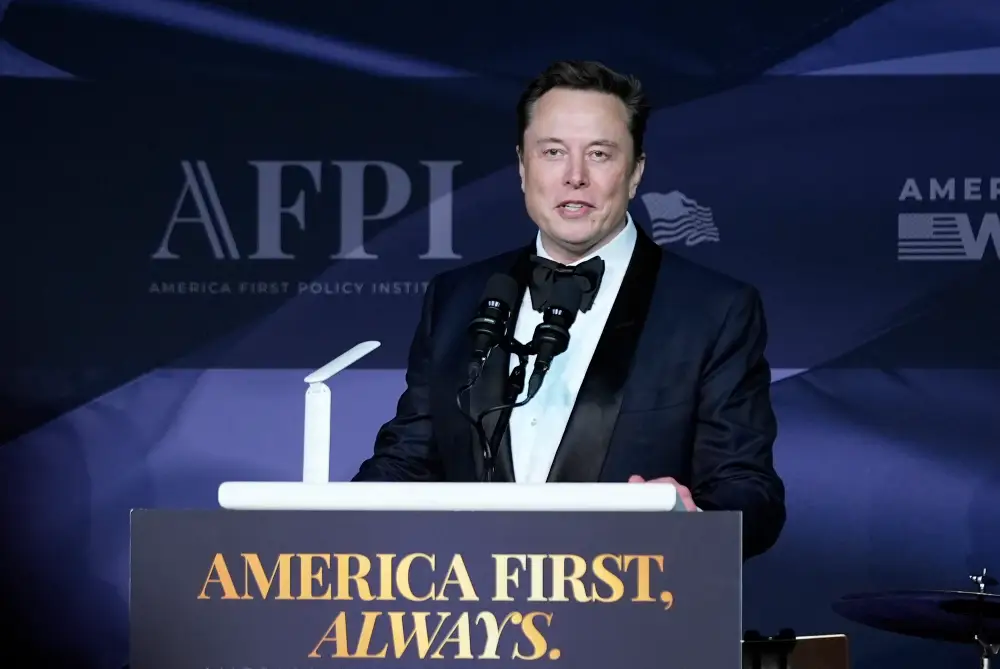Congress was set to get a modest raise. Then Elon Musk stepped in.

Elon Musk’s tanking of a government funding bill also helped kill a modest increase in congressional salaries
One of the most controversial pieces of the short-term government funding bill that Elon Musk helped tank last week was a provision that would have allowed members of Congress to receive a modest salary increase.
As Musk argued against the so-called continuing resolution in a stream of posts on X, he said lawmakers were set to receive a 40% salary increase if the bill passed.
In reality, rank-and-file members of the House and the Senate would have gotten at most a pay bump of $6,600, or 3.8% of their $174,000 annual salary, according to the Congressional Research Service.
How can this be called a “continuing resolution” if it includes a 40% pay increase for Congress? https://t.co/qFFUP0eUOH
— Elon Musk (@elonmusk) December 18, 2024
Nonetheless, that provision wasn’t included in the bill that emerged — and was signed into law — after two days of chaos on Capitol Hill.
That’s despite growing sentiment from lawmakers in both parties that even if the optics are poor, increasing the congressional salary is necessary to ensure that less-wealthy people are able to serve and aren’t lured away by higher salaries in the private sector.
Sen. Markwayne Mullin, an Oklahoma Republican and staunch supporter of President-elect Donald Trump, told reporters last week that the demands and responsibilities of the job made serving in Congress “not affordable” for those who weren’t already wealthy like him.
“If we’re not careful, you’re only going to get the individuals that are millionaires-plus that’s able to serve in Congress, and that’s not what it’s supposed to be,” Mullin said. “It’s supposed to be the people’s house.”
A $174,000 salary is far more than the average household income, but it hasn’t budged since 2009. Accounting for inflation, lawmakers’ salaries have essentially decreased by more than 30% in the past 15 years.
Members of Congress also face unique demands, including the need to maintain two residences: one in Washington, DC, the other in their home district. Those who can’t afford it often opt to sleep in their offices. Experts have also said it’s simply a matter of good governance: If lawmakers are paid well, they’re less incentivized to cash out by becoming lobbyists after their tenure.
“I tell people the worst financial decision I ever made was running for Congress,” Mullin said jokingly.
The provision tucked into the original funding bill technically was not a raise but rather allowed for an automatic cost-of-living increase originally established by the 1989 Ethics Reform Act. Those annual adjustments, which are typically single-digit-percentage salary increases, are designed to avoid the optics of lawmakers voting to increase their own pay.
Rep. Joe Morelle, the top Democrat on the House Administration Committee, sought to downplay the notion that members were receiving a raise. “It just complies with existing law,” Morelle told B-17 last week. “There’s nothing extraordinary about it.”
Congress has nonetheless chosen to block those adjustments every year since 2009, owing to both inertia and the political unpopularity of increasing lawmakers’ salaries. In March, a cohort of current and former lawmakers filed a class-action lawsuit over those denials, arguing that their wages had been “unconstitutionally suppressed.”
The politics of raising wages on Capitol Hill remains toxic, however. As word spread on Wednesday about the cost-of-living adjustment in the bill, lawmakers in both parties came out against it.
“I cannot and will not vote to give myself more money when my constituents are feeling unbelievable financial pressure,” Rep. Pat Ryan, a Democrat who represents a New York swing seat, said in a statement that day. “Congress should be focused on lowering costs for the American people, not giving ourselves a raise. If this provision isn’t removed, I will be voting against the continuing resolution.”
Ultimately, the cost-of-living adjustment was blocked once more.
Musk did not respond to a request for comment.





